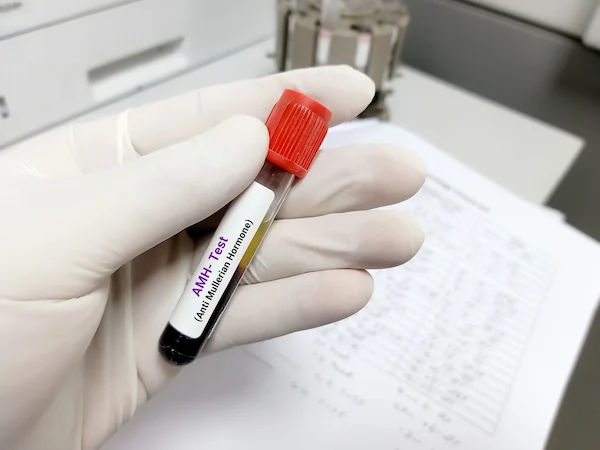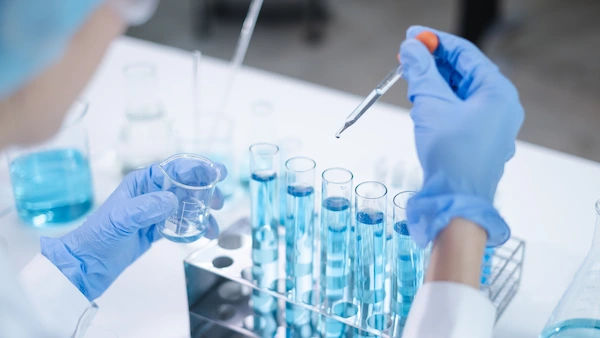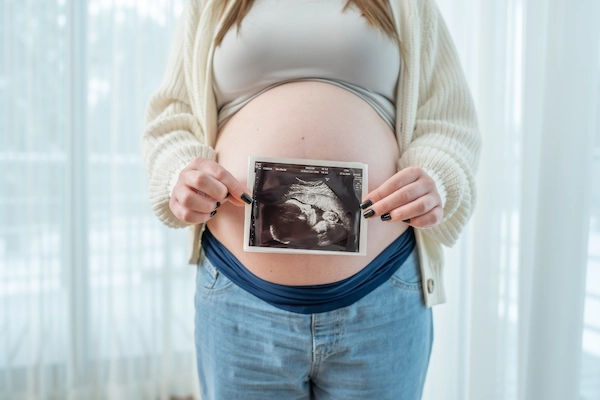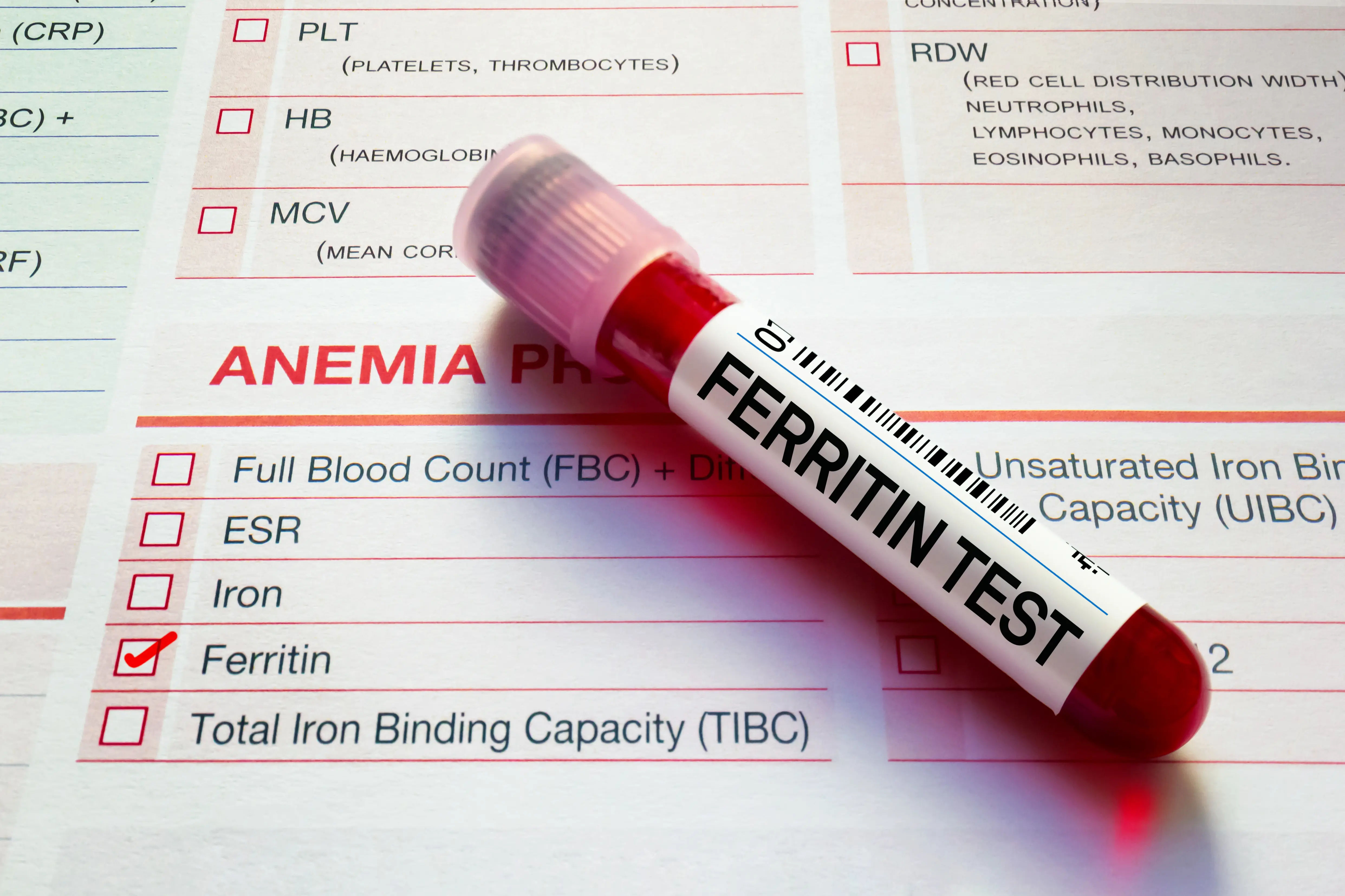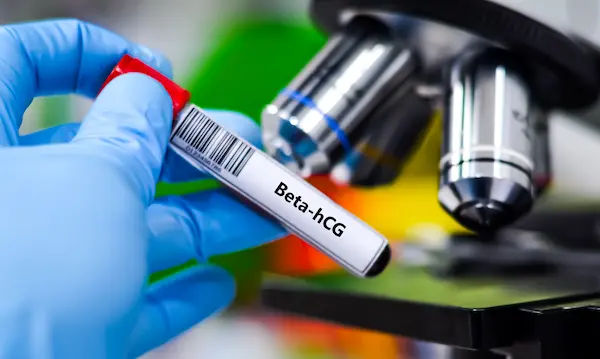Estradiol (E2) Test: Why This Female Hormone Matters Beyond Menopause
Estradiol (E2) is a vital female hormone that affects fertility, periods, bone health, and more. Learn how an estradiol test can uncover hormonal imbalances and guide treatment.

Written by
Last updated on 6th Aug, 2025

When most people hear the word oestrogen, they immediately think of menopause. But oestrogen is not just a hormone that becomes important later in life. One type of oestrogen, known as estradiol or E2 Hormone test, plays a crucial role throughout a woman’s life. From puberty and the menstrual cycle to fertility and even bone health, estradiol helps keep many bodily systems in balance.
A simple estradiol test, often included in a fertility hormone test, can give you important insights into your reproductive health. It can explain symptoms like irregular periods, mood swings, fatigue, or difficulty conceiving. It can also help track your response to hormone therapy or in vitro fertilisation (IVF). This article explains why estradiol matters, what the test involves, and how you can get tested easily with Apollo 24|7.
What Is the Estradiol Test and Why Is It Done?
The Estradiol test is a simple blood test that measures the level of estradiol, a type of oestrogen hormone, in the body. Estradiol is one of the main forms of oestrogen and plays a key role in the reproductive and hormonal health of women. This test is commonly used to assess how well the ovaries are functioning, evaluate fertility issues, monitor hormone replacement therapy, and investigate symptoms related to hormonal imbalance.
Although it is most often used in women, the estradiol test may also be done in men and children when doctors need to check for hormone-related concerns.
What Is Estradiol?
Estradiol is the most active form of oestrogen found in women of reproductive age. It is mainly produced in the ovaries, but smaller amounts are made in the adrenal glands and, in pregnant women, the placenta.
Estradiol is essential for:
- Regulating the menstrual cycle
- Supporting the development of female reproductive organs
- Maintaining healthy bones and skin
- Supporting pregnancy
- Managing cholesterol and fat distribution
In men, estradiol is present in much smaller amounts but is still important for reproductive and bone health.
Schedule an Assessment and Get Your Health Checked
Why Is the Estradiol Test Done?
Doctors may recommend an estradiol test (or E2 hormone test) for various reasons depending on age, symptoms, and overall health. Below are some of the most common situations where this test may be helpful.
- To evaluate fertility issues or irregular menstrual cycles
- To monitor ovulation during fertility treatments like IVF
- To assess early or delayed puberty in girls
- To check hormone levels during menopause or perimenopause
- To track progress during hormone replacement therapy (HRT)
- To investigate symptoms of hormonal imbalance, such as acne, hair changes or weight gain
- To help detect oestrogen-producing tumours in the ovaries or adrenal glands
What Does the Estradiol Test Involve?
The estradiol test is a simple blood test. A healthcare professional will take a small sample of blood from a vein in your arm. No special preparation is usually needed, although your doctor may ask you to take the test on a specific day of your menstrual cycle, as estradiol levels vary throughout the month.
Results are typically available within 24 to 48 hours. Your doctor will interpret the results based on your age, menstrual history, and any symptoms you’re experiencing.
Understanding Your Estradiol Results
The estradiol level in your blood varies depending on your age, menstrual cycle phase and whether you are pregnant or postmenopausal. Interpreting results always requires looking at the bigger picture, including other hormone levels and symptoms.
- Low estradiol levels may suggest poor ovarian function, early menopause or reduced oestrogen production. This can lead to irregular cycles, fertility issues, or symptoms such as low energy and thinning bones.
- High estradiol levels may occur during the mid-cycle ovulatory phase, in women using hormone therapy, or in conditions such as ovarian cysts or tumours.
In most cases, doctors will evaluate your estradiol levels along with Follicle-Stimulating Hormone (FSH), Luteinising Hormone (LH), Prolactin and sometimes Anti-Müllerian Hormone (AMH). This gives a complete view of your reproductive and hormonal status and supports accurate diagnosis and treatment planning.
Fertility and Hormone Testing with Apollo 24|7
Apollo 24|7 offers reliable tests to help women understand their reproductive and hormonal health. These tests are useful for women planning to get pregnant, experiencing irregular periods, or going through changes related to menopause.
- Estradiol (E2) Test: This test measures the level of estradiol, which is an important form of oestrogen. It helps doctors assess ovarian function, check fertility status, and monitor menopause-related changes.
Schedule an Estradiol (E2) Test
- Apollo Fertility Profile – Female: This package includes several hormone tests: Estradiol, FSH, LH, Prolactin, and AMH. Together, these give a full picture of a woman’s reproductive health and ovarian reserve. This profile is recommended for women who are trying to conceive or undergoing fertility evaluation.
Book an Apollo Fertility Profile – Female
- Hormone Screening Package: This includes tests for Estradiol, FSH, LH, and Prolactin. It is designed for women experiencing symptoms like mood changes, tiredness, or irregular periods, which may be due to hormone imbalance.
Book a Hormone Screening Package
Do not wait for symptoms to escalate. Early testing empowers you to take control of your hormonal health and make informed decisions at the right time.
Why Choose Apollo 24|7 for Your Hormone Testing
Apollo 24|7 offers several benefits that ensure a smooth and trustworthy testing experience:
- NABL-accredited labs: All tests are processed in certified labs that follow strict quality and safety standards, ensuring high accuracy and reliability.
- Home sample collection: Apollo offers doorstep sample collection by trained technicians, allowing you to get tested without having to leave your home.
- Fast results: Most test results are available within 24 to 48 hours and are accessible through the Apollo 24|7 app or website.
- Expert support: After receiving your results, you can consult with Apollo doctors to discuss next steps, whether for fertility planning, hormone therapy or further evaluation.
- Affordable packages: Apollo provides test packages at competitive prices, with transparent pricing and the option to choose from individual or bundled tests.
Apollo’s combination of trusted experience, digital convenience and clinical accuracy makes it a leading choice for women’s health diagnostics.
What to Do After Receiving Your Results
Once you receive your estradiol result, your doctor will interpret it in the context of your age, menstrual cycle and symptoms. Depending on the findings, you may be advised to:
- Undergo further hormone testing or a pelvic ultrasound
- Make lifestyle changes that support hormonal balance
- Begin or adjust hormone therapy if needed
- Consider fertility planning options or treatments
- Schedule regular monitoring for changes in hormone levels over time
Early detection of hormone imbalances allows for timely care. Whether you are managing menstrual health, preparing for pregnancy or monitoring menopause, hormone tests like estradiol provide important guidance.
Conclusion
Hormonal health plays a vital role in a woman’s overall wellbeing, and estradiol is one of the most important hormones to monitor. The estradiol (E2) test is not limited to menopause-related concerns. It provides valuable insights across all life stages, from puberty and fertility planning to perimenopause and beyond. Whether you are trying to conceive, experiencing irregular menstrual cycles, or noticing symptoms such as fatigue, mood changes, or hot flushes, checking your estradiol levels can help identify underlying hormonal imbalances.
Timely hormone screening allows for early diagnosis and personalised care. It supports better decision-making around fertility treatments, hormone replacement therapy, and general health management.

